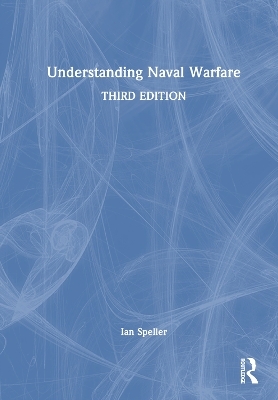
Understanding Naval Warfare
Routledge (Verlag)
978-1-032-22335-3 (ISBN)
This updated new edition of Understanding Naval Warfare offers the reader an accessible introduction to the study of modern naval warfare, providing a thorough grounding in the vocabulary, concepts, issues and debates, set within the context of relevant history.
The third edition explains traditional concepts and explores current and emerging ideas concerning the theory and practice of naval warfare, relating these to recent events including Sino-American naval competition and the Russian-Ukraine War. Navies operate in an environment that most people do not understand and that many avoid. They are equipped with a bewildering range of ships, craft and other vessels and types of equipment, the purpose of which is often unclear. Writings on naval warfare are usually replete with references to esoteric concepts explained in specialist language that can serve as a barrier to understanding. This book cuts through the obscure and the arcane to offer a clear, coherent and accessible guide to the key features of naval warfare which will equip the reader with the knowledge and understanding necessary for a sophisticated engagement with the subject. The new edition is divided into two key parts. The first focuses on concepts of naval warfare and introduces readers to the ideas associated with the theory and practice of naval operations and includes a chapter where the history of the last century of naval warfare is explored in order to illustrate the key concepts. The second part focuses on the conduct of war at sea and on peacetime roles for contemporary navies and now includes new material on hybrid warfare and grey zone operations and on joint warfare, multi-domain operations and integrated deterrence within the context of evolving great power rivalry at sea.
This textbook will be essential reading for students of naval warfare, sea power and maritime security and is highly recommended for those studying military history, strategic studies and security studies in general.
Ian Speller is a Professor of Military History and Director of the Centre for Military History and Strategic Studies at Maynooth University, Ireland. He also teaches at the Irish Military College and prior to this was a Senior Lecturer at King’s College London and the UK Defence Academy. He is the author/editor of various titles, including Understanding Modern Warfare (2016), Europe, Small Navies and Maritime Security (2018) and Amphibious Warfare: Strategy and Tactics from Gallipoli to Iraq (2014) coauthored with Christopher Tuck.
List of illustrations
Preface
List of abbreviations
Introduction
PART I
Concepts of Naval Warfare and Maritime Power
1 The Nature of the Maritime Operating Environment
2 Maritime Strategy and Naval Warfare I
3 Maritime Strategy and Naval Warfare II
4 Naval Diplomacy
5 Putting Theory into Practice
PART II
Contemporary Practice
6 Combat Operations at Sea: Sea Control and Sea Denial
7 Combat Operations at Sea: Exploiting Sea Control
8 Combat Operations from the Sea
9 Maritime Security
10 Contemporary Challenges and Naval Policy
Conclusion
Appendix I: Maritime Warfare Areas
Appendix II: Abbreviations for Types of Ship and Submarine
Appendix III: A Sample of World Navies in 2022
Select Bibliography
Index
| Erscheinungsdatum | 13.09.2023 |
|---|---|
| Zusatzinfo | 2 Line drawings, black and white; 4 Halftones, black and white; 6 Illustrations, black and white |
| Verlagsort | London |
| Sprache | englisch |
| Maße | 174 x 246 mm |
| Gewicht | 740 g |
| Themenwelt | Geschichte ► Teilgebiete der Geschichte ► Militärgeschichte |
| Sozialwissenschaften ► Politik / Verwaltung | |
| ISBN-10 | 1-032-22335-9 / 1032223359 |
| ISBN-13 | 978-1-032-22335-3 / 9781032223353 |
| Zustand | Neuware |
| Haben Sie eine Frage zum Produkt? |
aus dem Bereich


